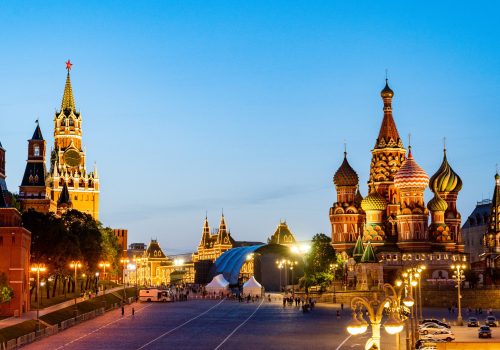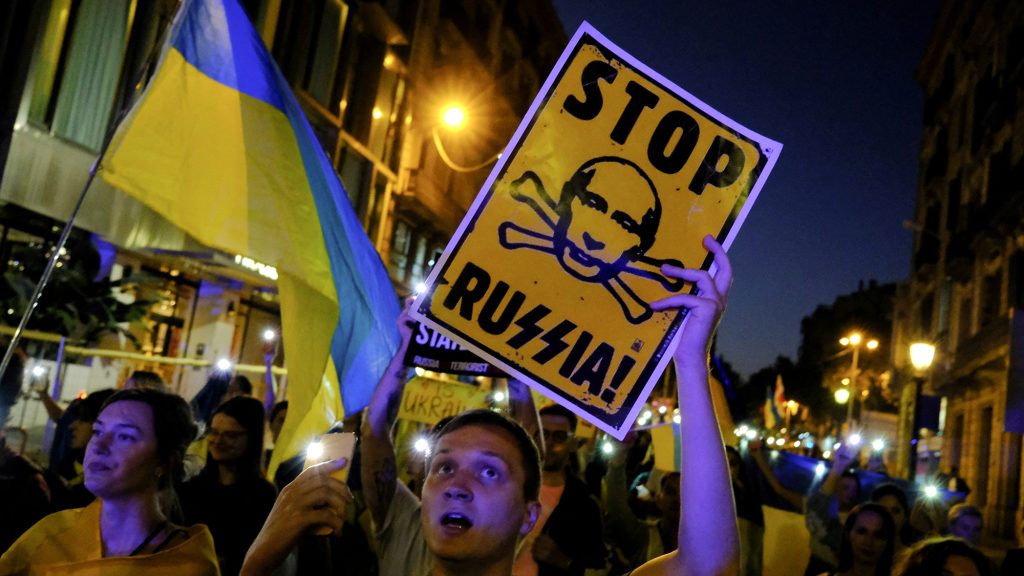How to respond if Putin goes nuclear? Here are the economic and political options.
Russian President Vladimir Putin, who lost on the battlefield, has resorted to tacit threats to use nuclear weapons in his war in Ukraine. The United States, the Group of Seven (G7), NATO and the European Union (EU) have responded to his risky stance by reaffirming their support for Ukraine and its territorial integrity.
In addition, the United States and other public (and reportedly private) messages have been sent out about the dire consequences Russia will face if it actually uses any type of nuclear weapon against Ukraine. Although unlikely, the chances of Russia using nuclear weapons in its war against Ukraine are not negligible. Finally, Putin surprised many (but not the US government) when he launched his offensive against Ukraine on February 24.
It is a good idea to show the Russians the consequences of any nuclear use. These talks must inevitably focus on military options as the most effective deterrent, but should not end there. Even if Putin, with his unprovoked and cruel invasion of Ukraine, renounced traditional rational behavior in the political and economic sphere, the West should nevertheless threaten strict political and economic measures in response to a Russian nuclear deployment. All of these measures should be prepared for swift application by the G7 and at least partially coordinated with other key countries, including China. Russia’s use of nuclear weapons against Ukraine would require a swift, near-immediate response from a broad coalition of concerned states that goes beyond the current Western-leaning nations.
Imposition of a full economic, financial and trade embargo. Turning Russia economically into Iran or North Korea should be the moral and logical starting point for any Russian use of a nuclear weapon in Ukraine. G7 and EU countries have so far imposed extraordinary sanctions over Russia’s invasion of Ukraine, but for the most part they have also measured their steps to avoid negative impacts on the global economy. Any use of nuclear weapons by Putin in Ukraine must obliterate any thought of a measured escalation ladder. Morally, it would place Russia’s behavior far above the atrocities committed by similarly embargoed nations like Iran, Syria – and even North Korea. Logically, it would also be inappropriate for the West to hope that Russia under Putin can be a reliable participant in an international economic order based on commonly agreed rules.
Some permits may need to be granted for longer liquidation of certain trade sectors (energy and possibly some certain metals) and longer exemptions for continued food and medicine trade, including Russian grain and fertilizer exports. There would need to be exceptions for humanitarian emergencies and measures in support of the Russian people, such as authorizing communications apps and devices that allow beleaguered Russian dissidents and human rights activists to communicate with the outside world. However, the basic premise for the day after Russia’s use of nuclear weapons against Ukraine should be that of a full embargo: all Russian companies would be considered under full lockdown sanctions, with available exceptions. Foreign property of Russian oligarchs or Russian state enterprises should be subject to nationalization.
Enforcement would involve the widespread use of secondary sanctions against foreign individuals or nations, including China, that violate such sanctions. This would include expeditious imposition of sanctions on banks, insurance companies, logistics providers, or any other financial or non-financial entity that trades with Russia or encourages illicit trade. Given Russia’s practices of concealing investments and ownership, the United States, EU, United Kingdom and G7 countries should consider regulatory (preferably) or legislative action to enforce transparency and disclosure of Russian investments or other significant ownership be it in a business, real estate, art or financial instruments. The Russian state is well versed in money laundering and would almost certainly look more like a criminal enterprise like North Korea than a normal government if slapped with sweeping economic sanctions.
Sanctions of this magnitude will have a significant negative impact on the global economy. However, they are unlikely to be much more economically destabilizing than the use of a nuclear weapon on European soil. Western nations need to make it clear to Putin and his inner circle that they are prepared to bear the economic consequences.
Seize Russian state assets. Within days of Putin’s February 24 attack on Ukraine, the G7 sealed off more than $300 billion in Russian foreign exchange reserves in their countries. However, this effective freezing does not allow the use of these funds for any purpose. We have noted elsewhere that the desire to use these funds to rebuild Ukraine is widespread, given Russia’s responsibility for the war and the problem of asking G7 taxpayers to pay for Ukraine’s reconstruction , while sitting on large amounts of Russian state funds .
However, there are enormous legal complications. Russia’s nuclear deployment would make acquiring these assets for use in Ukraine, including post-nuclear reconstruction, an immediate objective. Arguments about precedent should, and probably would, give way to a categorical imperative to act against the use of nuclear weapons.
Remove Russia from international organizations. Although Russia was kicked out of the G8 – and thus the G7 – in 2014, it remains a party to a number of international organizations. Should Russia use a nuclear weapon in Ukraine, its involvement in other international organizations should be reviewed. The first port of call to limit Moscow’s involvement should start in pro-business organizations, including the Group of Twenty (G20) and international financial institutions like the World Bank and International Monetary Fund (IMF), and perhaps even the World Trade Organization. Exclusion or restriction of membership in any of these bodies would be unprecedented and, interestingly, would not explicitly violate their existing statutes. Therefore, excluding Russia would be a complex political and bureaucratic undertaking and would require significant support from the governing members of each institution; For example, the IMF would require at least 85 percent of voting members to agree to Russia’s exclusion. Political support for such drastic action might be more accommodating after a Russian nuclear strike.
There may be a good case for engaging Russia in international political organizations such as the United Nations and the Organization for Security and Co-operation in Europe as sites for potentially valuable diplomacy with the Kremlin even after the use of nuclear weapons. However, in the face of such a dramatic escalation, Russia’s membership even in these groups should be reviewed and reconsidered.
Now is the time to consider and prepare for such strong responses and coordinate them in advance within existing G7 and transatlantic fora. One should have no illusions about how far Putin will go in Ukraine.
The planned Western responses need not be made public, but could usefully be communicated to both the Russian government and other strategically important nations that have remained relatively neutral in the current conflict, such as China, India, Turkey, South Africa and Saudi Arabia.
But that planning shouldn’t prevent the United States and its allies from using conventional weapons to respond to the horrors Putin is about to unleash. They should prepare for the worst while intensifying current efforts across the board – militarily, economically and politically – to contain Russia and help Ukraine defend and triumph.
Brian O‘Toole is a Nonresident Senior Fellow at the Atlantic Council‘s Center for Geoeconomics. He is a former Senior Advisor to the Director of the Office of Foreign Assets Control (OFAC) at the US Treasury Department. Follow him on Twitter @brianoftoole.
Daniel Fried is the Distinguished Fellow of the Weiser family at the Atlantic Council. He was Sanctions Policy Coordinator during the Obama administration, Assistant Secretary of State for Europe and Eurasia during the Bush administration, and Executive Director of the National Security Council for the Clinton and Bush administrations. He also served as ambassador to Poland during the Clinton administration. Follow him on Twitter @AmbDanFried.
Continue reading

Thu, 08.09.2022
Russia sanctions database
econography
Through
The Atlantic Council’s Russia Sanctions Database tracks the level of coordination among Western allies in sanctioning Russian facilities, individuals, ships and aircraft, and shows where gaps remain.
Pictured: Ukrainian citizens and locals take part in a march against Russia’s declared annexation of four partially occupied Ukrainian regions October 14, 2022 in Barcelona, Spain. Photo via REUTERS/Nacho Doce.
